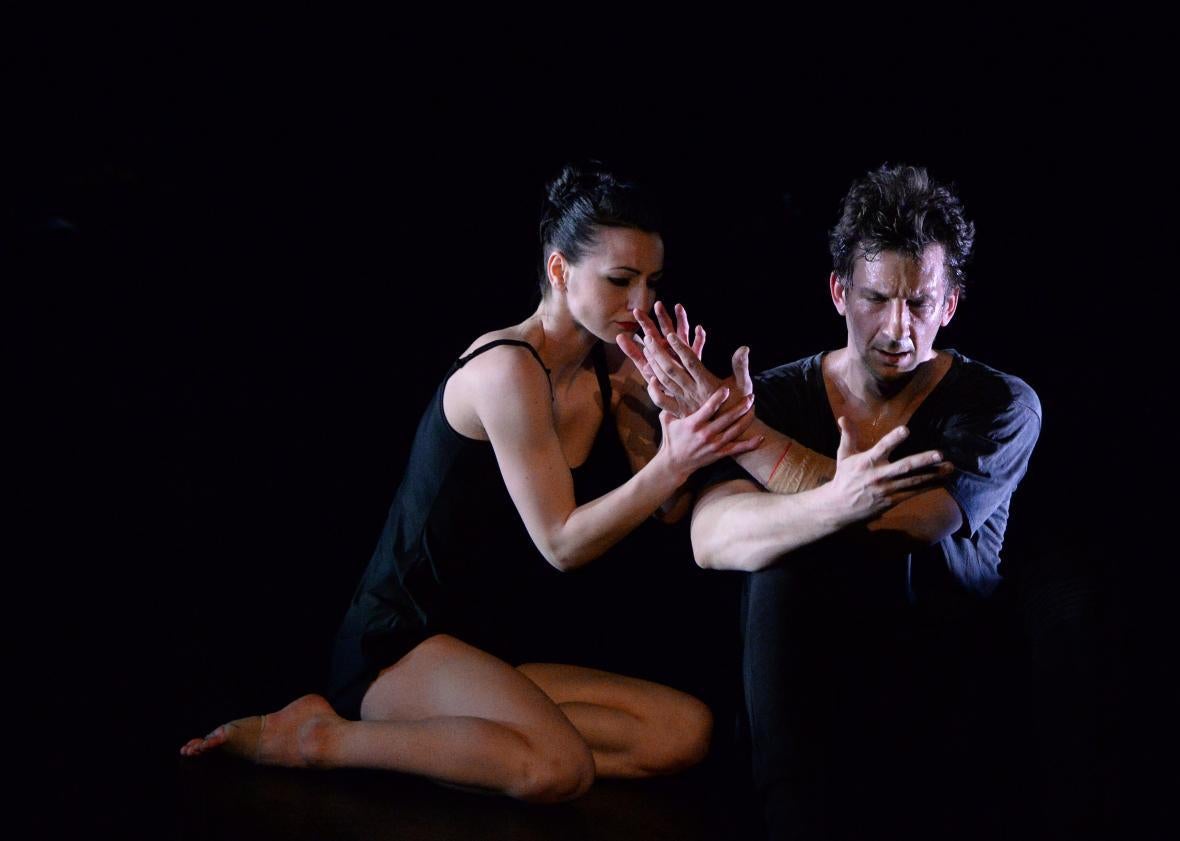The singular they is gaining acceptance as a resourceful solution to English’s lack of a gender-neutral singular pronoun. But it’s not settling in without controversy. What’ll be next? critics fear. Themself? As in, Jo went to see the movie all by themself?
Actually, yes. We should be falling all over ourselves—or, if you’re a monarch, ourself. Got a problem with themself? You should take it up with Her Majesty.
Like singular they, the royal we, in which a sovereign refers to themself with plural pronouns, takes a curious reflexive form. Ourself, joins a plural our with a singular self. While unusual, ourself is all over Shakespeare. Take Macbeth: “The sweeter welcome, we will keep ourself/ Till supper-time alone.” Richard II shows us the pronoun’s intensive form: “We will ourself in person to this war.” Even the heroic and eloquent Henry V employs it: “It was ourself thou did abuse.”
Chaucer, Dickens, and Tennyson join Shakespeare to form a literary pantheon of ourself. John Wycliffe used ourself in his seminal 14th-century translation of the Bible into English. Some believe English’s majestic plural started with Henry II’s claim to divine right. When he spoke, he was also speaking for God. Hence we. The royal we, however, probably goes back to ancient Rome.
And the construction has evolved. Journalist and author Constance Hale identifies several modern first-person plurals. Like the political we: “We are taking this campaign all the way to convention.” Or the editorial we, employed representatively by columnists. There’s the urban we, which Hale ribs as a sort of smug, hipster sanctimony: “We should really compost, honey.” And then there’s the nanny we: “We don’t play with our food now, do we?”
Since we still use various collective we’s, we are still referring to ourselves as ourself.
The up-to-the-minute corpus Newspapers on the Web finds hundreds of recent examples of ourself, often in quotations from individuals speaking on behalf of an organization or cause.
Both ourself and themself are attested earlier in the record than their plural counterparts, which superseded them in the 16th century. So they’re not just lofty and quaint: They’re original, even found in some foundational Anglo-Saxon texts.
But c’mon, you might be saying. Ourself simply doesn’t sound as wrong as themself. Compare Jo went to the movie by themself with a coach’s post-game analysis of We really pushed ourself hard this match. The first example just innately sounds more ungrammatical, doesn’t it?
Well, the latter example might enjoy an unfair advantage: The plural our agrees with the plural subject, dampening the din of disagreement some hear as more jarring between Jo and themself. (Conversely, many users of collective we may err on the side of ourself, as ourselves may jar some with its suggestion of multiple speakers.)
And are there any good alternatives to themself? Style mongers might blow their whistle at the alien-y xeself, the impersonal oneself, the clumsy him or herself. While we often judge grammaticality by our ear, we should be sensitive: themself, along with ourself and us self, are perfectly grammatical in certain speech communities. Not to mention that, for the person who identifies as genderqueer, some alternatives to themself don’t accurately represent their identity.
Once upon a time, we called ourselves whatever we wanted. As early as the ninth century, English speakers were using a simple, solo self as its general reflexive and intensive pronoun. The usage leaves us with some great examples in the annals, according to the Oxford English Dictionary: god self, man self, lord self, thing self, parties self, poet self. (By this token, Jo saw movie by Jo self.) Yet these usages didn’t stick around. Others did, and merged together with frequent and widespread usage, like himself, herself, myself, itself, and oneself, and, for a time, ourself and themself. Themself is a perfectly acceptable inflection for singular they. If you don’t like it, you’ll soon be by yourself – yet another pronoun that has managed just fine in both the singular and the plural.
